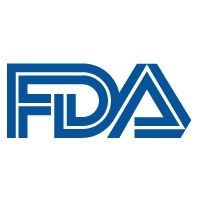FDA Approves New Antifungal Drug
The US Food and Drug Administration approved Cresemba (isavuconazonium sulfate), a new antifungal drug product used for invasive aspergillosis and invasive mucormycosis treatment in adults.

The US Food and Drug Administration approved Cresemba (isavuconazonium sulfate), a new antifungal drug product used for invasive aspergillosis and invasive mucormycosis treatment in adults.
Rare but serious conditions, these infections are most often prevalent in individuals afflicted with weak immune systems.
Cresemba is the sixth approved antibacterial or antifungal drug product designated as a Qualified Infectious Disease Product (QIDP).
Given its QIDP designation, Cresemba was awarded priority review, providing an expedited review of the drug’s application. This also qualified Cresemba for 5 more years of marketing exclusivity added to its existing terms provided by the Food, Drug, and Cosmetic Act.
In light of the rarity of these fungal infections, the FDA also allowed Cresemba orphan drug designations for both invasive aspergillosis and invasive mucormycosis.
Edward Cox, MD, MPH, director of the Office of Antimicrobial Products in the FDA’s Center for Drug Evaluation and Research, said, “Today’s approval provides a new treatment option for patients with serious fungal infections and underscores the importance of having available safe and effective antifungal drugs.”
The Cresemba approval for invasive aspergillosis followed a clinical trial that involved 516 participants randomized to receive receive either Cresemba or voriconazole, another, previously approved drug for invasive aspergillosis treatment.
Additionally, Cresemba’s approval for invasive mucormycosis treatment was based on a single-arm clinical trial with 37 participants who had been treated with Cresemba.
Both studies indicated the safety and efficacy of in treating these “serious fungal infections”.
The most common adverse events associated with Cresemba was reported to include nausea, vomiting, diarrhea, headache, abnormal liver blood tests, hypokalemia, constipation, dyspnea, and peripheral edema. Cresemba may also cause serious side effects including liver problems, infusion reactions and severe allergic and skin reactions.